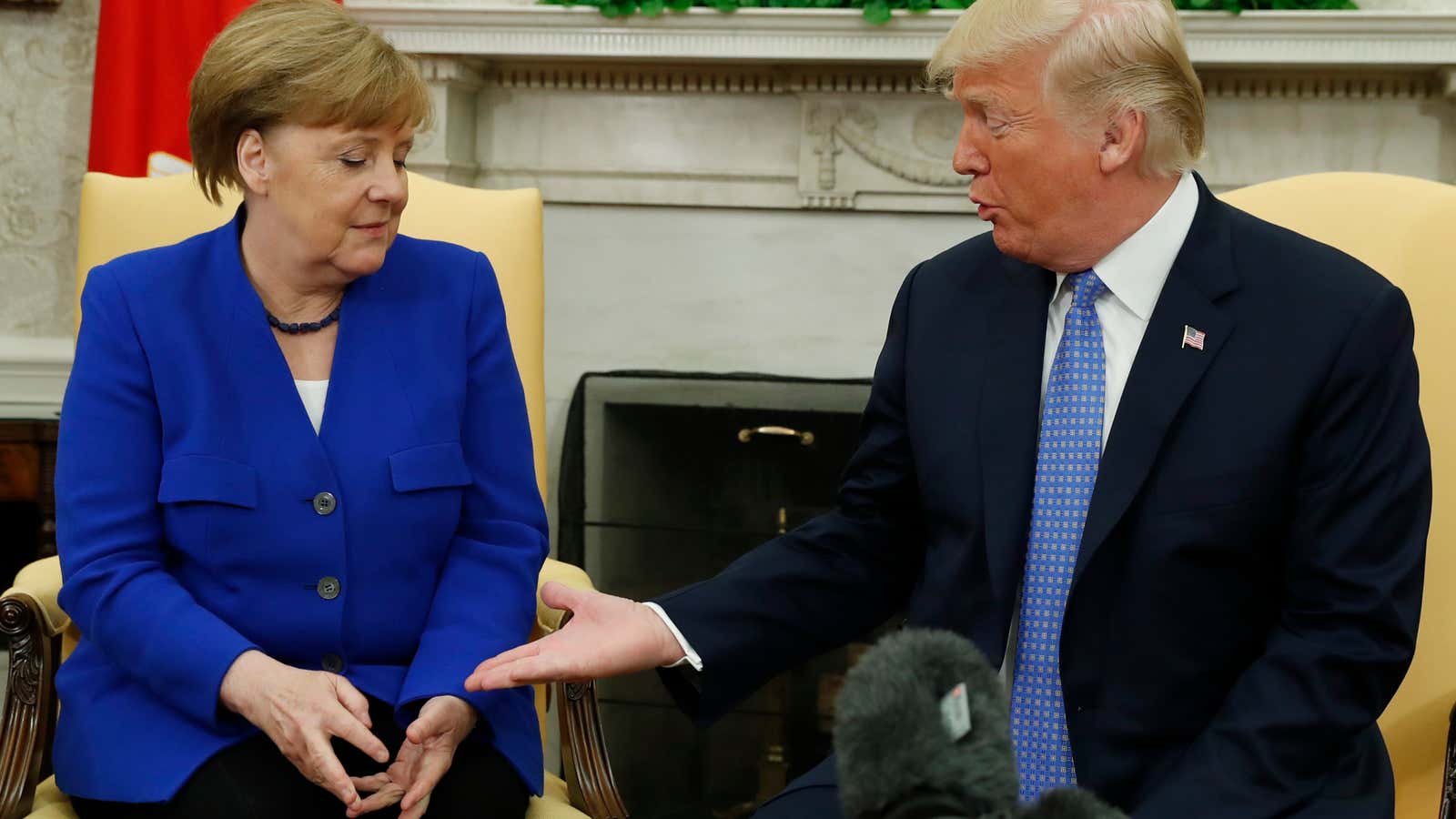It’s crunch time for trade relations between the United States and Europe. May 1, International Labor Day, is going to be busy for the European Commission in Brussels, as the US’s tariffs exemption on EU steel and aluminum is set to expire at midnight eastern time in the US.
In March, US president Donald Trump imposed new 10% and 25% tariffs on aluminum and steel, respectively. Last week, French president Emmanuel Macron and German chancellor Angela Merkel separately went to the White House to try to persuade Trump to keep the tariff exemptions in place, but both came away empty-handed.
As hope faded, the two held crisis talks with UK prime minister Theresa May over the weekend to synchronize their responses. Merkel’s office released a statement (link in German) yesterday saying that the leaders “agreed that the EU should be prepared to defend its interests.”
On Monday, EU trade commissioner Cecilia Malmström held last-minute minute talks with US commerce secretary Wilbur Ross but, again, failed to secure a definite answer to removing the tariffs for the EU.
Penalizing peanut butter
The EU wants to avoid an all-out trade conflict, but not at any cost. Brussels has already threatened to hit back with tariffs on American imports such as motorcycles, jeans, orange juice, bourbon, and peanut butter—after Canada, the EU is the biggest importer (chart in German) by volume of that quintessentially American product.
The EU’s draft list of US imports that could be slapped by tit-for-tat tariffs amounts to €2.8 billion ($3.4 billion), a lot less than the €6.4 billion worth of steel and aluminum that the bloc exported to the US in 2017.
Ross said on Friday that the US wanted “quotas, if not tariffs”on EU metal shipments. However, forcing countries to limit their exports to a particular country violates World Trade Organization rules, and the European Commission has said it won’t be bullied into negotiating concessions before Washington grants a permanent waiver on the metal tariffs.
